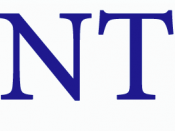Characteristics of Effective Self-directed Learning Teams
Self-directed work teams are defined as "groups of employees who are responsible for a complete, self-contained package of responsibilities that relate to a final product or ongoing process. Team members' posses a variety of technical skills that will develop new skills to increase their versatility, flexibility and value to the work team." (Attaran, 1999, p. 24)
In order to develop into an effective self managed work team, the following skills must be mastered: participation, listening, communication, leadership, self-assessment and conflict management. Within this analysis, it will be examined and illustrated why these values are critical for the success of self-managed work teams.
Participation
Effective participation is a key element for successful team results. Team participation is dependant upon having cooperation, an open environment and collaboration amongst its team members. Each team member is expected to contribute equally in order to achieve the teams stated goals.
As a result, listening carefully, being open to new ideas, and welcoming differences of opinions are all attributes team members will need to be proficient with. Vocalizing thoughts as well as encouraging others to do the same, plays an equally important role in participation. According to Rex Houze, just asking questions is not enough. You also need to listen to the answers that people give you (Houze, 2000).
Effective Listening
For a self-managed team to excel, all group members need to be able to listen to their fellow peers. Comprehending and understanding team member's delivered messages are functions of the team becoming effective listeners.
Self-managed teams become effective listening groups by identifying and working around certain listening barriers. Addressing listening obstacles such as concentrating on the speaker, avoiding pre-judgment and asking clarifying questions, all assist the team to advance their listening skills. There are generally three basic listening modes...


